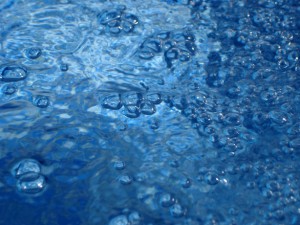Is Good Quality Water Important?
Most people are aware of the link between drinking water and health. The CDC (Centers for Disease Control & Prevention) recommends that we each drink eight 8 ounce glasses of water each day to avoid dehydration and enjoy the health benefits associated with proper hydration. Unfortunately, many people overlook the importance of water quality and wonder if they are actually drinking poor or good quality water. 
The Potential Harm From Poor Quality Water:
Poor quality drinking water is linked to a number of detrimental health effects. According to data from the CDC, drinking water contaminants are one of the leading causes of outbreaks of disease. Drinking water contaminated with hepatitis A, Giardia intestinalis, Shigella and norovirus can create serious health complications, but these are far from the only risks. There are also potential health risks which relate to water which is contaminated by inorganic and organic matter, viruses, bacteria and a number of other pollutants.
Another serious concern about poor quality water is high levels of lead. Lead in drinking water has been linked to mental and physical development problems, learning difficulties and short attention spans in children. While lead is a serious concern for children, it can also cause health complications in adults such as high blood pressure, memory loss, miscarriages and mood disorders.
The Effect of Poor Quality Water on Your Home:
Poor water is not only detrimental to your health, it could be damaging your appliances and home. Hard water is often responsible for compromising the efficiency of water using appliances such as dishwashers and washing machines. This is because the deposits of minerals in hard water accumulate around heating elements and in pipes, forcing the appliance to work harder to heat the water. You may also notice that laundry and dishes are not as effectively cleaned even if you are using more and more detergent. Research has shown that using softened water in your home could reduce the amount of laundry and dish detergent by fifty percent. You may also enjoy energy savings since you can use lower washing temperatures to efficiently clean your clothes.
According to a study commissioned by the WQRF (Water Quality Research Foundation) in 2009, using softened water in the home can help major appliances and water heaters to operate at maximum efficiency. Softened water can also help to prevent clogs in faucets, drains and shower heads. The research team ran a number of tests including running washing machines and dishwashers for 240 wash cycles over 30 days. The team used a hard water source for half of the machines and softened water for the remainder. At the end of the trial period, the machines which had used softened water were almost free of any scale build up, while the machines with a hard water source needed scale removal in order to continue to operate efficiently.
The team also assessed the performance of water heaters. The researchers documented that when softened water was used, the water heater units could maintain the original factory efficiency rating for up to 15 years. This performance was reduced by up to 48 percent when hard water was run through the units.
About The Author:
Greg Scott is President of Valparaiso based Miracle/EcoWater Systems, the premier water conditioning company in Northwest Indiana serving the Lake, Porter and LaPorte County areas. A 3rd generation water treatment professional, Greg grew up in the family owned business started by his grandfather in the late fifties. He has made water treatment his life and under his direction and high-standards, the company’s water treatment experience, knowledge, and products are unrivaled in region.
Back to
